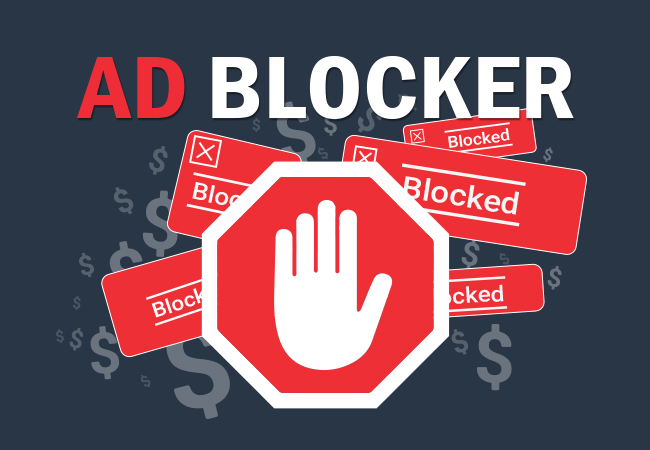In today’s digital age, where privacy concerns loom large, the use of government spyware has sparked significant controversy. Governments around the world are increasingly turning to surveillance technologies to monitor citizens, raising serious questions about privacy rights and civil liberties. One recent development in this ongoing debate is the use of government spyware to circumvent ad blockers, a move that has further fueled concerns among privacy advocates and internet users.
Table of Contents
ToggleOverview of Government Spyware

Definition and Purpose
Government spyware refers to software or tools deployed by government agencies for the purpose of monitoring and collecting data from individuals’ devices, such as computers, smartphones, and tablets. While governments often cite national security and law enforcement as justifications for deploying such technology, the use of spyware raises significant privacy concerns.
Examples of Government Spyware
Examples of government spyware include tools developed by intelligence agencies to track communications, monitor online activities, and gather information about individuals without their consent. These tools can range from sophisticated malware designed to infiltrate devices undetected to legal surveillance software used with judicial authorization.
Privacy Implications
Invasion of Privacy
The use of government spyware represents a significant invasion of privacy, as it allows authorities to access sensitive information about individuals’ online behavior, communications, and personal data without their knowledge or consent. This intrusion into the private lives of citizens raises serious ethical and legal questions about the balance between security and civil liberties.
Legal and Ethical Concerns
The legality and ethicality of government spyware use are hotly debated topics. While some argue that such surveillance is necessary for national security and crime prevention, others contend that it violates fundamental rights to privacy and freedom of expression. The lack of transparency and oversight surrounding the deployment of spyware only adds to these concerns.
Ad Blockers: An Essential Tool
Functionality of Ad Blockers
Ad blockers are software tools designed to prevent advertisements from being displayed on web pages and apps. By blocking ads, these tools not only improve user experience by reducing clutter and distractions but also help protect privacy by preventing third-party tracking and data collection.
Rise in Popularity
In recent years, ad blockers have become increasingly popular among internet users seeking to enhance their online privacy and security. With concerns about data privacy and targeted advertising on the rise, more people are turning to ad blockers as a way to regain control over their online experience and protect their personal information.
Government Use of Ad Blocker Circumvention
Motivations Behind Government Use
Governments have a vested interest in monitoring online activities for various reasons, including national security, law enforcement, and intelligence gathering. As ad blockers pose a challenge to traditional methods of online surveillance and data collection, some governments have resorted to using spyware to circumvent these tools and monitor individuals’ online activities more effectively.
Methods of Circumvention
Government agencies employ various methods to circumvent ad blockers and collect data from individuals’ devices. These may include deploying malware disguised as legitimate software updates, exploiting vulnerabilities in web browsers and operating systems, or coercing internet service providers and technology companies to assist in data collection efforts.
Impact on User Privacy
Implications of Circumventing Ad Blockers
The circumvention of ad blockers by government spyware poses serious risks to user privacy and security. By bypassing these privacy-enhancing tools, authorities can access sensitive information about individuals’ browsing habits, interests, and preferences, potentially compromising their anonymity and exposing them to targeted surveillance and profiling.

Potential Risks to User Data
Furthermore, the collection of data through ad blocker circumvention raises concerns about the security and misuse of this information. Government agencies may store, analyze, and share this data without individuals’ knowledge or consent, leaving them vulnerable to exploitation, identity theft, and other forms of online surveillance and harassment.
Public Response and Advocacy
Outcry Against Government Surveillance
The revelation of government spyware use to circumvent ad blockers has sparked outrage among privacy advocates, civil liberties organizations, and internet users worldwide. Many argue that such surveillance undermines individual freedoms, chills free expression, and erodes trust in government institutions, calling for greater transparency, accountability, and oversight of surveillance activities.
Calls for Privacy Protection
In response to growing concerns about government surveillance and data collection, there have been calls for stronger privacy protections and regulations to safeguard individuals’ rights online. Advocacy groups, lawmakers, and tech companies are working to develop solutions that balance the need for security with respect for privacy, such as encryption, anonymization, and data minimization techniques.
Conclusion
The use of government spyware to circumvent ad blockers represents a troubling escalation in online surveillance and privacy infringement. As governments seek to expand their surveillance capabilities in the digital age, it is essential to uphold fundamental rights to privacy, freedom of expression, and due process. By advocating for transparency, accountability, and oversight, we can strive to create a more secure and respectful online environment for all.
FAQs
- Is government spyware legal?
- The legality of government spyware varies depending on jurisdiction and the specific methods used. In some cases, such surveillance may be authorized by law enforcement or intelligence agencies, while in others, it may violate constitutional rights to privacy and due process.
- How can I protect myself from government spyware?
- To protect yourself from government spyware and other forms of online surveillance, consider using privacy-enhancing tools such as virtual private networks (VPNs), encrypted messaging apps, and ad blockers. Additionally, regularly update your software and use strong, unique passwords to minimize the risk of infiltration.
- What are the ethical implications of government spyware use?
- The use of government spyware raises serious ethical concerns about the balance between security and civil liberties, the right to privacy, and the potential for abuse of power. Ethical considerations include transparency, accountability, consent, and the proportionality of surveillance measures.
- Can ad blockers block government spyware?
- While ad blockers can prevent advertisements and tracking scripts from loading on web pages, they may not necessarily block all forms of government spyware. Some spyware may be designed to evade detection by ad blockers or exploit vulnerabilities in web browsers and operating systems.
- What actions can I take to advocate for privacy rights?
- To advocate for privacy rights and protections, consider supporting organizations and initiatives that promote digital privacy, civil liberties, and government transparency. Stay informed about privacy issues, engage with policymakers, and participate in public discussions about surveillance, data privacy, and online freedoms.